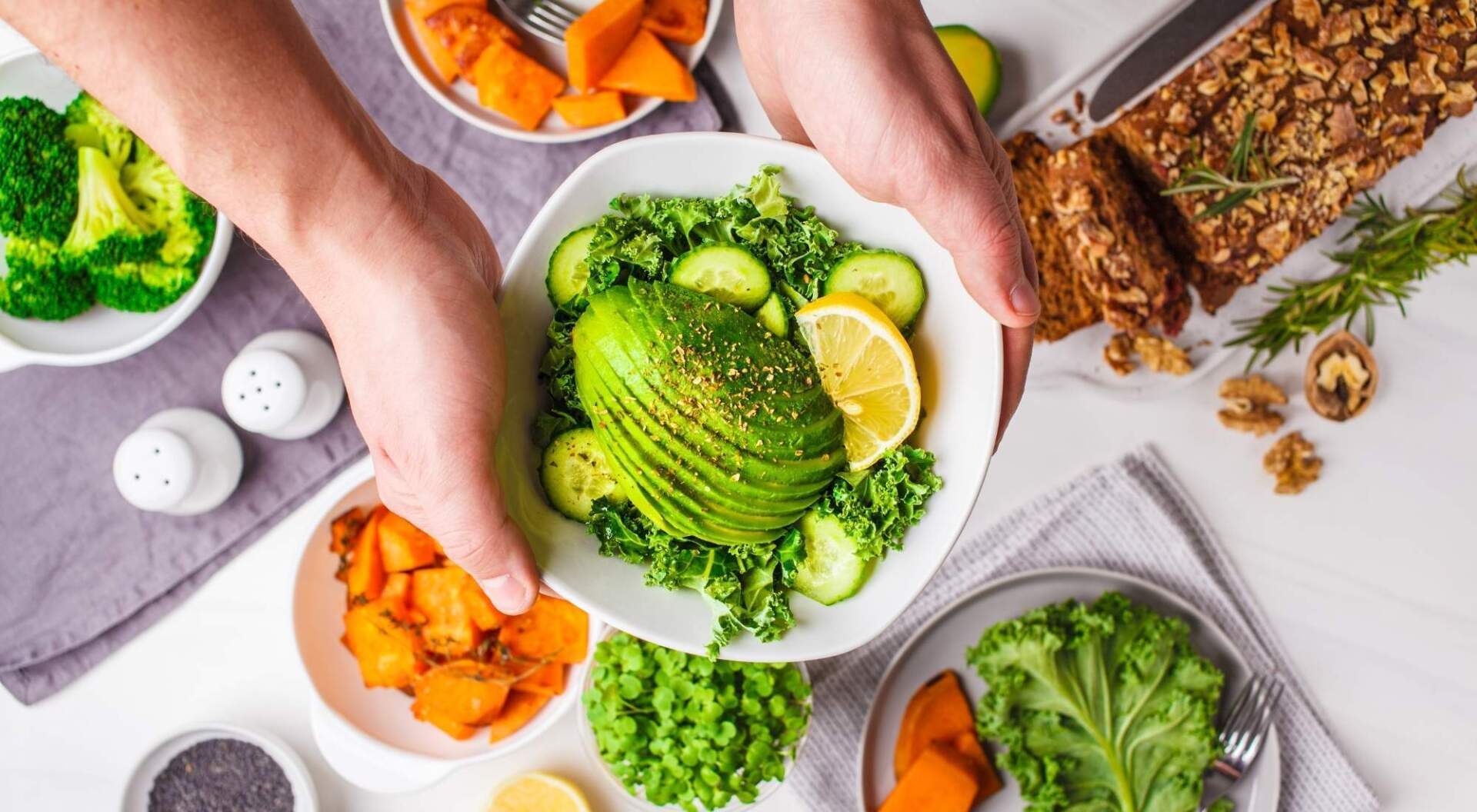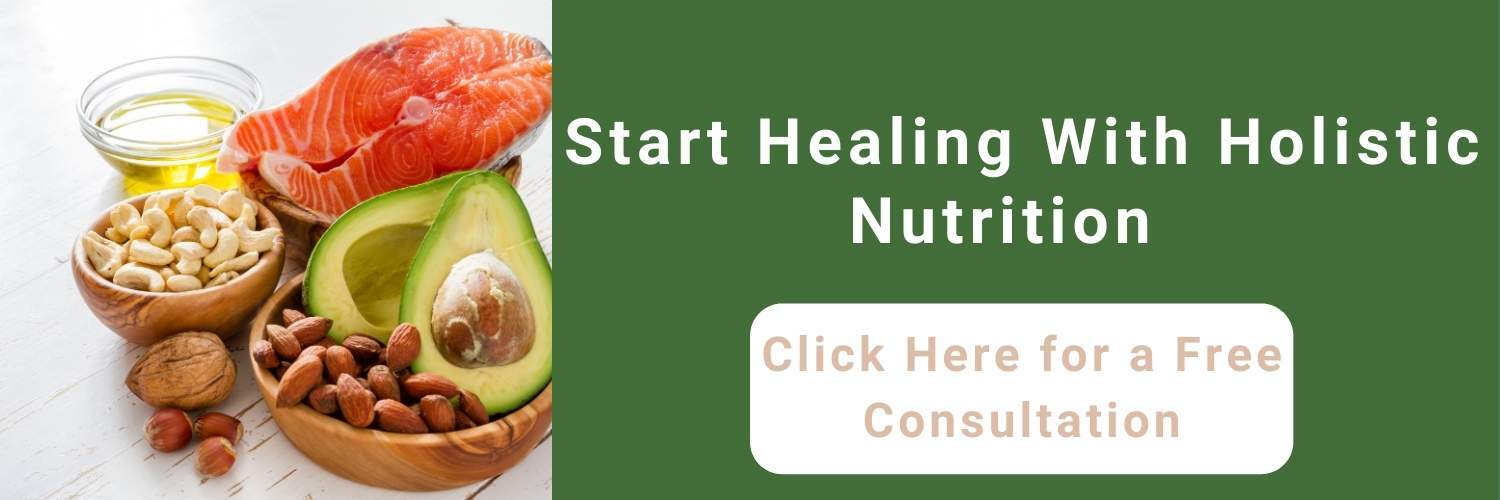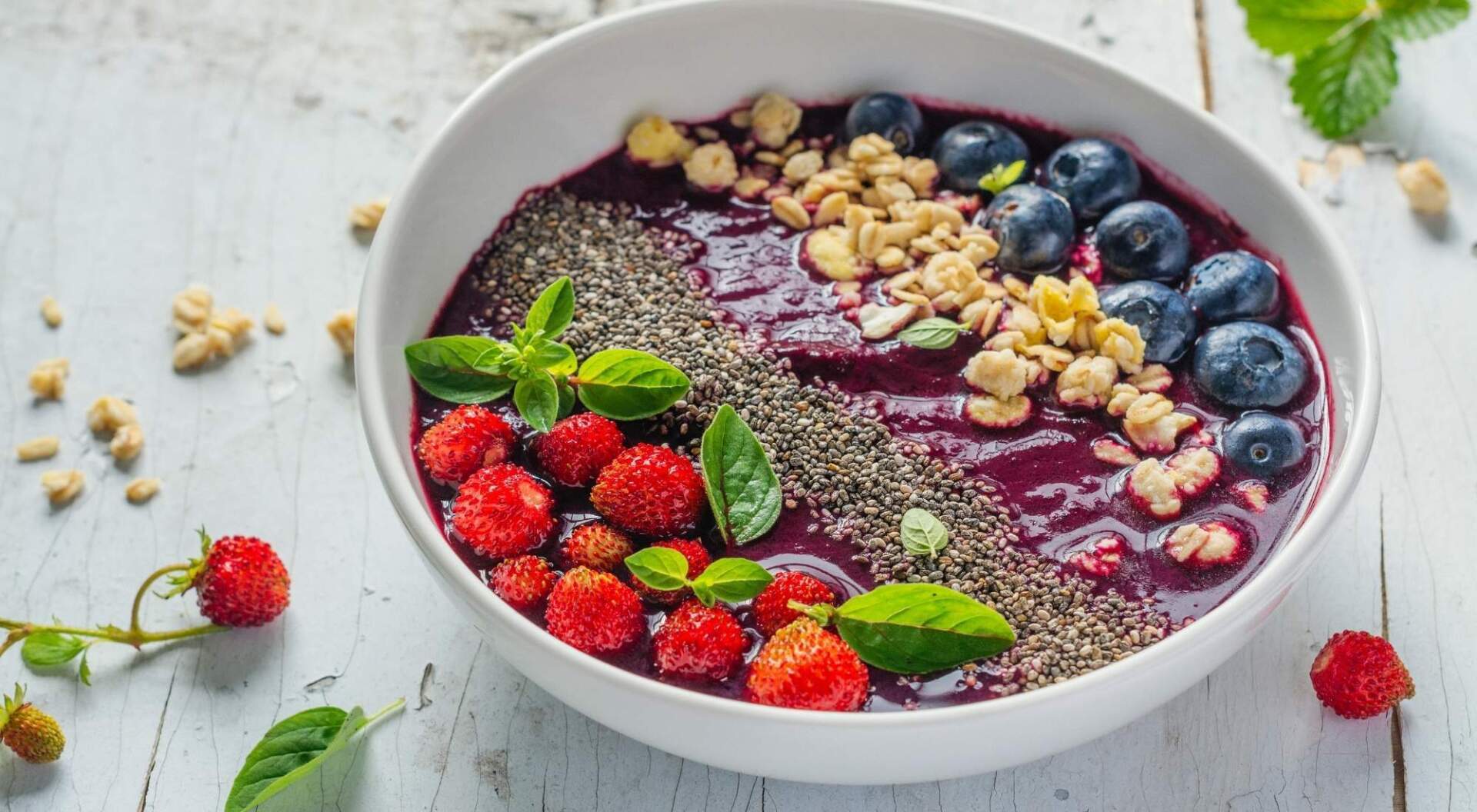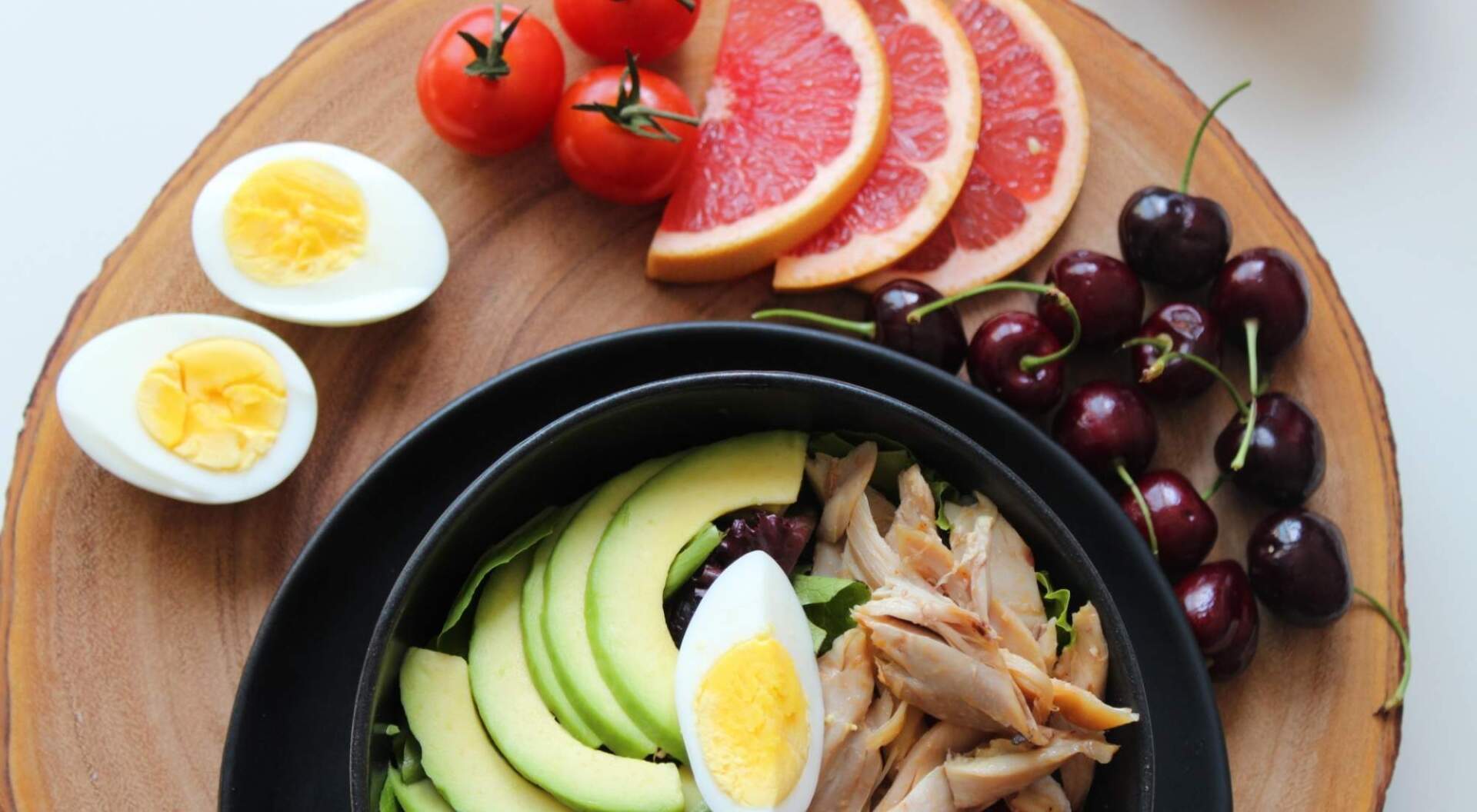Infant Acid Reflux Breastfeeding Diet: What To Eat for A Happier, Healthier Baby
"The content below is not intended to be a substitute for professional medical advice, diagnosis, or treatment. Always seek the advice of your physician or other qualified health provider with any questions you may have regarding a medical condition."
Fussing after nursing, gagging, spitting up, and a constant wheezy cough — your sweet little one’s acid reflux is breaking your heart.
The last thing you want to do is medicate your baby, but is there another way to get to the root of the issue, and bring healing to your child’s upset tummy?
We’re here to tell you the answer is YES, and the solution can be found in adhering to an acid reflux breastfeeding diet.
Here we discuss acid reflux in Infants, a breastfeeding diet, and how a holistic nutrition program from HealthierU can help put an end to acid reflux — the natural way.
Table of Contents
Can a Mother’s Diet Cause Her Baby To Have Acid Reflux?
The female body does some miraculous things, and breastfeeding is no exception.
A mother’s diet is directly related to the diet of her breastfeeding baby, as what you eat can impact the nutrition, composition, and even taste of your breast milk.
You may be wondering, how long does it take for ingested foods to influence your breast milk? It varies depending on the type of food you ingest.
Let’s take a look at some examples of the time it takes for certain foods to influence your breast milk:
- Coffee: 15–60 minutes
- Garlic: 2 hours
- Carrots: 2–3 hours
- Mint: 4–6 hours
Some foods that influence your breast milk can affect your baby in different ways. For example, your child can have a food allergy in response to something you ate, however, one of the most common reactions linked to a mother’s diet and breastfeeding is
acid reflux.
What Are Common Signs of Acid Reflux in Breastfed Babies?
You probably already know it’s common and normal for infants to spit up after a meal. This little phenomenon is known as gastroesophageal reflux or GER.
However, frequent vomiting, irritation, and other symptoms can hint at a more serious problem, known as gastroesophageal reflux disease (GERD), commonly known as acid reflux.
Common acid reflux symptoms to look out for in an infant include:
- Frequent vomiting and regurgitation
- Persistent coughing or wheezing
- Difficulty eating
- Irritability associated with feeding or following feedings
- Gassiness
What Foods Make Reflux Worse In Breastfed Babies?
When you’re dealing with acid reflux in infants, a breastfeeding diet that avoids these foods may be helpful:
- Fruit and fruit juice
- Tomatoes
- Spicy foods
- Caffeine
- High-fat foods
- Some Seafood
- Alcohol
7 Foods To Avoid When Breastfeeding a Baby With Acid Reflux
Trying to figure out which foods to avoid when breastfeeding a baby with reflux can seem overwhelming, especially when you have an already fussy baby.
Below, we will discuss the foods that cause reflux in breastfed babies. A good rule of thumb is that if certain foods cause acid reflux for you, they could also cause acid reflux for your baby.
#1: Fruit and Fruit Juice
Fruit and fruit juices with high acidity can trigger acid reflux in infants, causing discomfort. Some acidic fruits and fruit juices you’ll want to avoid consuming include:
- Apples
- Oranges
- Lemons
- Other citrus fruits
#2: Tomatoes
You may be surprised to hear that tomatoes and tomato-based sauces are included in this list of foods to avoid when breastfeeding a baby with acid reflux.
While tomatoes can be an excellent source of vitamin C, an essential nutrient for healthy breastfeeding, they are also highly acidic — which can lead to a very gassy, uncomfortable, and irritable baby.
#3: Spicy Foods
Have you ever eaten a spicy meal only to get a hearty dose of heartburn afterward? The same can happen to your baby when you breastfeed after eating spicy food.
Spicy foods can irritate the lining of the stomach, which can trigger acid reflux. When you’re following an acid reflux breastfeeding diet, you’ll want to avoid:
- Chili powder
- Peppers (white, black, cayenne)
- Salsa,
- Hot sauces
- Cumin
- Turmeric
#4: Caffeine
While your daily cup of coffee isn’t enough to cause problems for your infant, experts advise breastfeeding mothers not to consume more than 300–500mg of caffeine per day — the equivalent of 5 cups of coffee.
If your baby takes in too much caffeine from your breast milk, they can experience acid reflux as well as other caffeine stimulation symptoms, such as irritability.
#5: Foods High in Fat
It is best to only consume foods with high fat content in moderation while breastfeeding. Breastfeeding your baby after consuming foods high in fat can cause the lower esophageal sphincter (LES) to remain open longer, which causes the contents of the stomach to reflux.
On your acid reflux breastfeeding diet, be sure to avoid fatty foods like:
- French fries
- Sausage
- Bacon
- High-fat sauces
- Excessive oily salad dressings
#6: Some Seafood
While seafood can be a great source of protein and omega-3 fatty acids and wonderful building blocks for proper nutrition, some seafood can do more harm than good.
Avoid consuming seafood that is high in mercury. Mercury may find its way into your breast milk and affect your child. Excessive amounts of mercury in breast milk can even have adverse effects on your baby’s developing nervous system.
Some types of seafood that are high in mercury include:
- Swordfish
- King mackerel
- Tilefish
- Marlin
- Orange roughy
- Ahi tuna
- Bigeye tuna
#7: Alcohol
No level of alcohol in breastmilk is considered safe for your child to consume. However, this doesn’t mean you can’t enjoy a glass of wine every once in a while.
When it comes to breastfeeding and consuming alcohol, you have two options to ensure your child’s safety:
- Pump before consuming alcohol: If you plan on enjoying an alcoholic beverage, you can pump breast milk before drinking alcohol so you have a clean supply to feed your baby later.
- Wait it out: If you drink alcohol, wait for it to completely clear your breast milk before breastfeeding your baby. The Centers for Disease Control and Prevention (CDC) recommends waiting two hours (per drink) before breastfeeding.
How Can I Soothe Acid Reflux in My Breastfed Baby? 2 Methods To Consider
Neither your heart nor sanity can put up with your baby crying in discomfort for hours due to acid reflux. Motherhood doesn’t come with an instruction manual and it can be difficult to know exactly how to help soothe acid reflux in a breastfed baby.
Here are two ways you can handle acid reflux in babies:
#1: Help Baby’s Physical Discomfort
- Try smaller, more frequent feedings: When your baby’s stomach is too full, they are at greater risk of having acid reflux after feedings. Feeding your baby more frequently in small amounts can help avoid irritating acid reflux symptoms. This is because a less full stomach decreases the amount of pressure put on the lower esophageal sphincter, which is a muscle that prevents food from going back into the esophagus from the stomach. The lower esophageal sphincter takes about a year to strengthen, which is why babies spit up frequently.
- Feed your baby upright: Feeding your baby in an upright position can help reduce the risk of acid reflux in babies. Additionally, keeping your baby upright for at least 30 minutes after feeding is also believed to have the same acid reflux prevention effect.
- Thicken breast milk: With your doctor’s approval, you can thicken your breast milk by adding a small amount of infant rice cereal. Thickening the breast milk can help lessen spit-ups and acid reflux symptoms by reducing the risk of your baby’s stomach contents sloshing up into the esophagus. Always consult your doctor before trying this alternative.
- Burp your baby more frequently: It’s important to burp your baby often, both during and after feedings. Anytime your baby pulls off the nipple during breastfeeding, be sure to give them a little burp.
#2: Change the Mother’s Diet
Now that we have discussed how to treat acid reflux symptoms, let’s talk about an even better option — preventing acid reflux episodes before they happen.
Holistic nutrition is an excellent tool to help avoid acid reflux in infants caused by breastfeeding. Based on the idea that your nutrition is related to all aspects of your health, holistic nutrition is a lifestyle that involves eating healthy foods that are:
- Whole
- Unrefined
- Unprocessed
- Organic
- Locally grown
How Can Holistic Nutrition Benefit a Breastfeeding Baby With Acid Reflux?
Holistic nutrition focuses on providing your body with nutrient-dense foods that have a positive impact on your health. This, in turn, positively impacts the health of your breastfed baby.
In the same way certain foods give you acid reflux, your nursing baby is susceptible to the same reaction by consuming food composition through your breast milk.
Holistic nutrition involves eliminating refined and processed foods, which are known to cause acid reflux. By not consuming these foods or strictly limiting their consumption, you can stop the problem at the source instead of merely treating symptoms.
Treat Your Baby’s Acid Reflux Naturally With Holistic Nutrition at HealthierU
Holistic nutrition goes beyond simply discovering foods to avoid when breastfeeding a baby with acid reflux.
Not only does holistic nutrition help avoid acid reflux episodes for you and your breastfeeding child, but it also provides both of you with the best nutrition possible for optimal health.
From acid reflux to chiropractic care to hypothyroidism treatment in Brooklyn, learn more about how holistic health and nutrition at HealthierU can benefit your family today by scheduling a free consultation.






